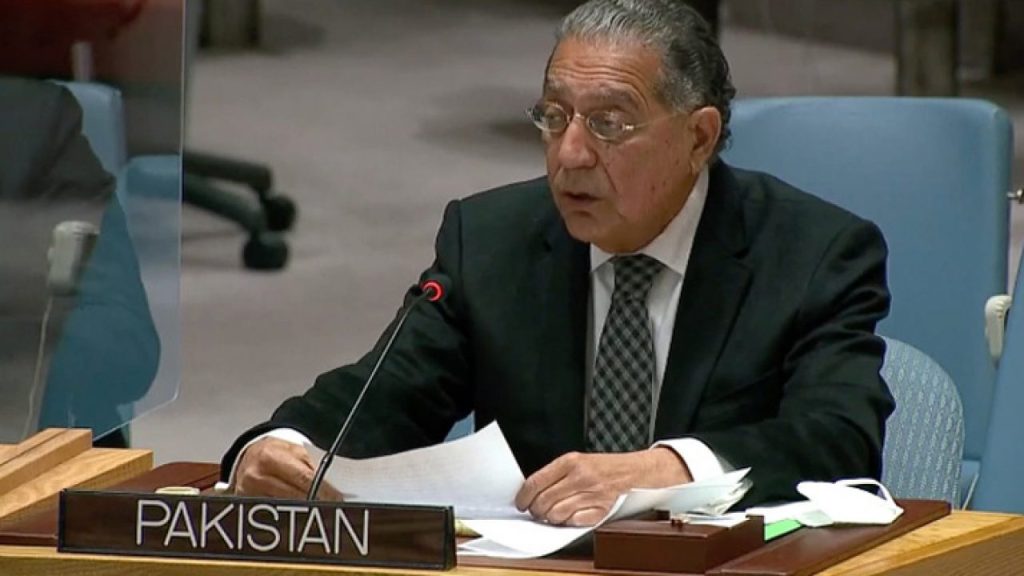NEW YORK: Pakistan has urged the United Nations Security Council to take a decisive action against terrorism in Afghanistan to stop cross border attacks.
Ambassador Munir Akram, the permanent mission of Pakistan to the United Nations, made this demand during the UN Security Council meeting on Afghanistan.
Munir Akram highlighted the dangers of allowing impunity for terrorist groups in Afghanistan. He emphasized that goals such as investment, social and economic development, and infrastructure projects cannot be achieved as long as these groups operate freely within and from Afghanistan.
Akram added that TTP is the most direct and serious threat to Pakistan. He detailed the TTP’s terrorist activities, which have resulted in hundreds of civilian and military casualties.
He said the TTP has intensified its attacks, after acquiring sophisticated weapons. Despite Pakistan’s repeated calls for Afghan authorities to take decisive action against the TTP, including halting cross-border attacks, disarming fighters, and handing over terrorists, no significant action has been taken, he said.
He said that the TTP safe havens near Pakistan’s borders persist, and recent cross-border attacks have included one that killed several Chinese engineers working on the Dasu hydropower project.
Akram urged the UN Security Council to call on the Afghan interim government to sever its links with the TTP and its associates, prevent cross-border attacks against Pakistan, disarm TTP terrorists, and capture and hand over TTP leaders to Pakistan.
Munir Akram said that Pakistan continues to advocate for sustained engagement with the Afghan Interim authorities to help normalize the situation in Afghanistan. He said that the Afghan interim government decision to participate in the Doha meeting at the end of this month represents a critical opportunity for constructive dialogue on all key issues related to Afghanistan.
Reminding the international community of its obligation to assist the 23 million Afghans in urgent need of humanitarian aid, Pakistan embody to UN said that unfortunately, the Afghanistan Humanitarian Needs and Response Plan has only received 16.2% of the necessary $3.06 billion for the targeted 17.3 million Afghans.
Full funding from all possible sources is essential to meet these critical needs, he maintained, he added.
The Pakistan UN Ambassador asked the Afghan interims authorities to take steps to meet its obligations in line with international law and established norms. He said that global concern remains over the restrictions imposed on women and girls in Afghanistan, which do not align with international law or Islamic tenets.
Concluding the statement, Akram said that Pakistan enjoys close bonds of ethnicity, history, faith, language, and culture with Afghanistan. Promoting peace, stability, and development in Afghanistan is a national compulsion for Pakistan.
“We will continue to work at all levels—bilateral, regional, international, and with the UN—to achieve these objectives,” he declared.


